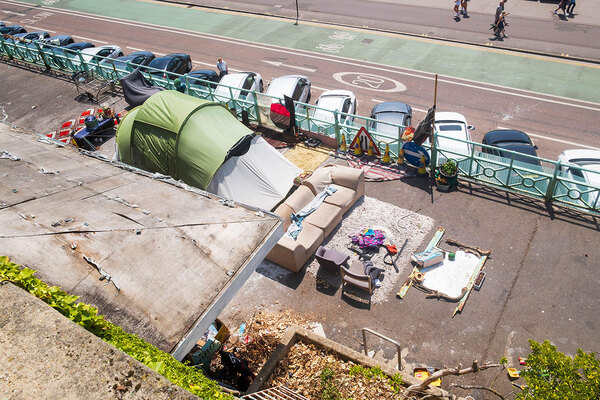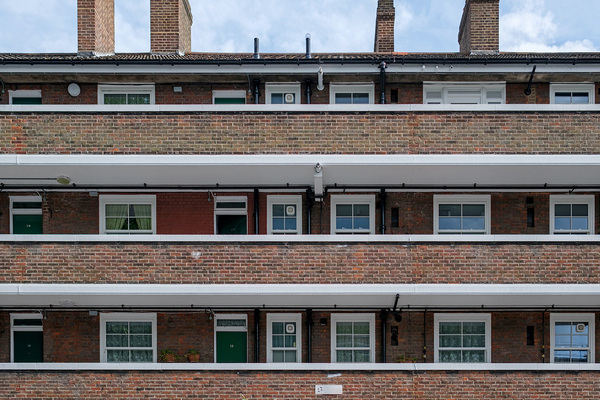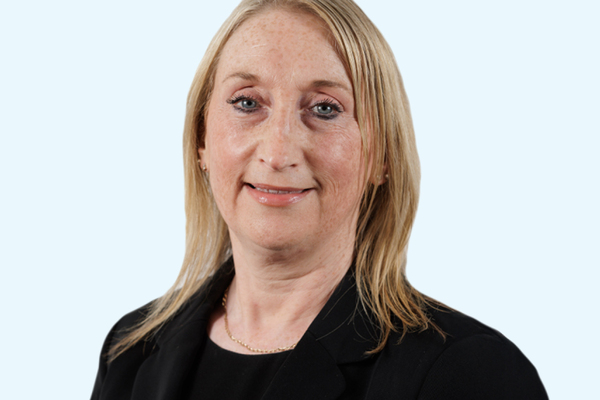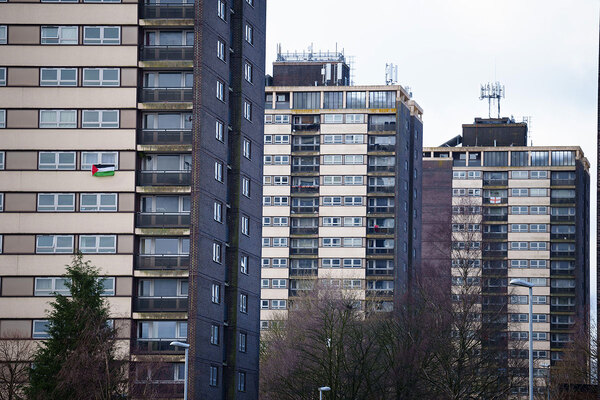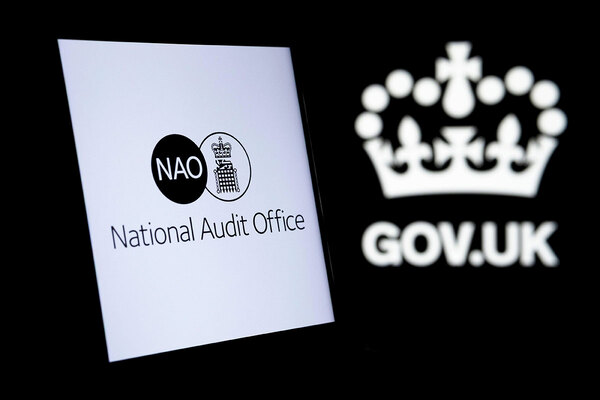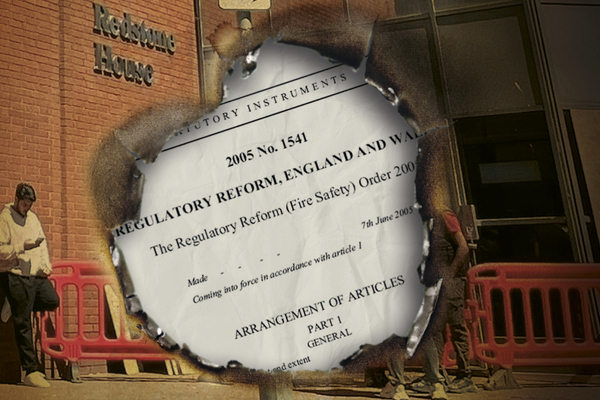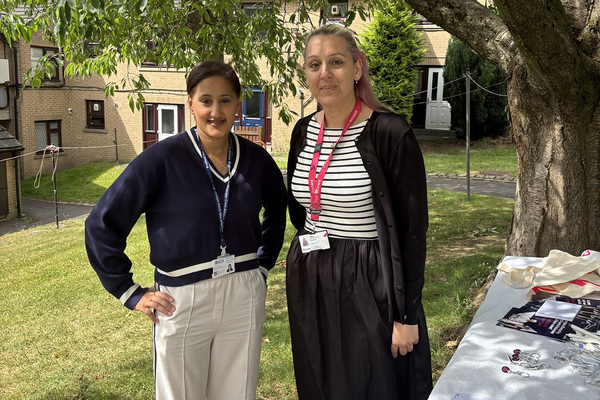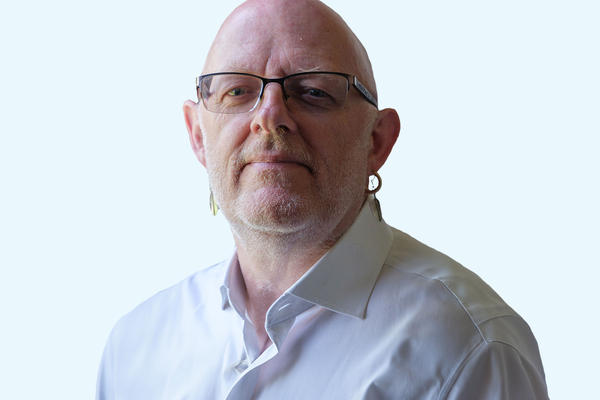CPD module: introduction to supporting tenants with complex mental health issues
Complex mental health issues among tenants are a rising concern for social landlords. A team of specialists working in supported accommodation at the Coventry, Warwickshire and Worcestershire arm of mental health charity Mind – Steven Hill, chief executive; Kimberley Sysum, head of operations; and Joanne Carsley-Beale, manager and mental health nurse – explain best practice for supporting tenants with complex mental health needs.
Read the article, take a test at the bottom of this page, earn CPD minutes


Learning outcomes
After reading this article, learners will be able to:
- Define complex mental health issues
- Understand the range and types of complex mental health issues that housing staff might come across
- List the various challenges that complex mental health issues present to housing staff
- Understand how to carry out a dynamic risk assessment
- Explain how managers can improve support mechanisms for tenants with complex mental health issues
- Detail what extra support is available and how to access it
Complex mental health issues are a rapidly growing issue for social housing providers, with significant implications for resident-facing staff.
An Inside Housing Management survey of more than 600 resident-facing housing staff in April revealed that, for 57% of resident-facing housing staff, supporting tenants with complex mental health issues is a major worry at work. Meanwhile, government research published in 2023 found that more people than ever are experiencing mental health crises, with those at a social and economic disadvantage at a “much higher risk” of developing mental health conditions.
This CPD article offers an introduction to the challenges of complex mental health issues, and explores how resident-facing staff at social housing providers can best support those struggling with them.
What are complex mental health issues?
Any mental health issue can be complex, but the term ‘complex mental health issues’ refers to when a person is struggling with a multitude of symptoms, often related to more than one disorder.
They could be struggling with more than one mental health condition (co-existing conditions), or have a mental health condition alongside a substance use disorder or a physical problem (such as traumatic brain injury, hormonal issues or obesity).
A ‘transdiagnostic’ term
The term ‘complex mental health issues’ is transdiagnostic, meaning it recognises that symptoms cross diagnostic boundaries, and diagnoses are “hard to access, changing, and potentially stigmatising”, according to a University of Sheffield study funded by the National Institute for Health and Care Research (NIHR).
It can include diagnoses such as personality disorders, persistent depression, substance misuse, neurodevelopmental issues and post-traumatic stress disorder (PTSD).
What is the impact of complex mental health issues?
Those struggling with complex mental health issues are likely to experience “repeated episodes of anxiety and depression, with long-term, frequently unpredictable changes in mood”, according to the study.
Because of this, complex mental health issues often impact all aspects of a person’s life – including their relationships and their ability to sustain somewhere to live.
What types of complex mental health issues are housing staff seeing?
Unfortunately, housing officers see common mental health conditions – including anxiety, low mood and depression – regularly.
Conditions that are less frequent but potentially more difficult to manage include schizophrenia, complex PTSD, bipolar disorder and personality disorders (there is a lack of understanding around personality disorders, which has led to widespread stigma around this diagnosis).
It is important to remember there is no obligation for tenants to disclose any private medical details, include mental health diagnoses.
What challenges do housing staff face when working with tenants with complex mental health issues?
Depending on what condition (or co-existing conditions) a resident is struggling with, they may be experiencing symptoms ranging from low mood, self-neglect and self-isolation to psychosis, self-harm and suicidal ideation.
As well as having a huge impact on the resident, these symptoms can make tenancy management more difficult, stressful and time-consuming for a housing officer.
For example, someone struggling with depression could become more insular and isolate themselves in their property. On the other hand, a person having a manic episode might disrupt other properties within their housing block.
Common challenges
- Self-neglect, or neglect of a property
- Rent arrears
- Failure to engage
- Hoarding
- Disruption to neighbours
Less common but more severe challenges
- Showing signs of delusion
- Psychosis/manic episodes
- Hospitalisations (often leading to rent arrears)
- Cuckooing (the property of a vulnerable resident being taken over by drug dealers)
- Self-harm
- Suicide threats/suicide
Increasingly, a lack of readily available support from statutory services such as the NHS is leaving housing officers with no specialist training dealing with these challenges alone, or else relying on voluntary mental health services.
How can housing staff support tenants who are dealing with complex mental health issues?
Housing staff may not be mental health specialists, but they have a duty to safeguard residents: to ensure that residents are placed in safe, appropriate housing and that any risks to their safety and well-being are properly managed.
This is particularly important for residents with complex mental health issues, who are more vulnerable to being stigmatised, targeted and abused (financially or otherwise).
Warning signs of a decline in someone’s mental health include changes to their usual routine, environment or behaviour. For example:
- An unkempt physical appearance or environment
- New financial difficulties
- Withdrawing or failing to engage
- Unusual behaviours, including signs of delusion
How to talk to residents about their mental health
The best way to talk to a resident about their mental health is to be direct. Skirting around key questions can make people feel patronised, or confused about what they are being asked.
- After noticing a change in behaviour or environment, stating the change factually is the fastest way to begin a discussion about it. For example: “You are staggering, you are slurring. Have you used drugs or alcohol today?”
- If a housing officer is concerned for a resident’s safety, they should ask them directly: “Are you safe?”
- If a resident has talked about suicide, or a housing officer suspects they might be thinking about it, they should ask vital questions. These questions include “have you got any plans to end your life?” and “do you have a means?”
Crucially, housing officers must follow up their questions by asking the resident how they can help them.
If the individual has the capacity to help themselves, leaving them a ‘toolkit’ of resources (see ‘self-help toolkit’ further down) can be helpful.
Dynamic risk assessment
Sometimes, a housing officer will need to assess and deal with a crisis incident with a resident. Examples of this might include property damage, threats to harm themselves or others, actual harm to themselves or others, wielding a weapon, and visionary or auditory hallucinations.
A dynamic risk assessment is a continuous, real-time evaluation of hazards and risks that is carried out as a situation changes.
It should evaluate and document the following:
- Appearance
- Body language
- Communication
- Behaviour
- Signs of intoxication
The level of risk will be categorised as high, medium or low – with corresponding actions recorded to ensure effective risk management.
As well as assessing a resident’s well-being in order to secure them the appropriate help, housing officers need to consider their own safety during a dynamic risk assessment. If their safety is at risk, they should step out of the situation before seeking help for a resident.
Options for getting help
Call 111 or the GP:
If somebody is experiencing a mental health-related crisis, housing staff should help them to call 111 and select option two (the option for a mental health-related issue, available 24/7) for an urgent but not life-threatening situation, or to contact their GP.
Call Samaritans:
Another option is to call the Samaritans on 116 123 to access free, confidential support from trained volunteers at any time during the day or night. Depending on the location, other voluntary organisations may also provide this service.
Call 999:
If somebody is a danger to themselves or someone else, for example if they have a weapon, or if they are self-harming or threatening suicide, housing staff should call 999 immediately and prioritise their own safety while taking advice from the operator.
Case studies
Case study 1: Calling for backup
A woman in Mind-managed supported housing was shouting and banging inside her room and wouldn’t open her door. Support workers were scared to enter, so a manager opened the door slightly to assess the situation. The woman was unclothed, and walking around wielding a knife. The manager quickly closed the door, and staff called 999 to access an ambulance crisis team who could support the resident without endangering staff. Staff talked to the woman from behind the door, explaining what they were doing to support her.
Case study 2: Safeguarding
A vulnerable woman in a Mind-managed housing association property was singing very loudly at all hours of the day and night. Neighbours in her housing block became very unhappy with the disturbance, and after attempts to mediate the situation failed, they ganged up on the resident. For her own safety, she was placed in longer-term housing in a new location, and was subsequently helped in accessing medication.
How can housing managers improve support mechanisms?
- Training. Resident-facing staff should have a robust package of training to support residents with complex mental health issues (including trauma-informed training).
- Self-help ‘toolkit’. A self-help ‘toolkit’ should be readily available to leave with residents, with numbers to call including 111 option two, Samaritans and other local voluntary organisations.
- Partnerships. Building and maintaining strong relationships with local, specialist mental health services that can support staff should be a priority.
- Legal information. Housing officers should have ready access to information regarding tenants’ legal rights, and their priority for housing under the Housing Act.
Compassion fatigue
Compassion fatigue is when caregiving professionals experience emotional and physical exhaustion as a result of caring for others in emotional pain, according to the Psychological Professions Network.
Housing staff should never feel that it is their responsibility to deal with the impact of complex mental health issues alone. Housing managers can support resident-facing staff by having a designated ‘well-being lead’ to instigate initiatives, debriefs and drop-ins, offering professional counselling for staff, and cultivating an open-door policy.
What other support is available for residents?
- Samaritans. Residents can call 116 123 to access 24/7 support from trained volunteers.
- Shout Crisis Text Line. Residents can text ‘SHOUT’ to 85258 for 24/7 support.
Steven Hill, Kimberley Sysum and Joanne Carsley-Beale work for a specialist branch of Mind. To construct this CPD module, the team used its knowledge from people accessing their service who could be navigating social housing.
Now get your CPD minutes
Next, answer the questions below. Get all the questions correct and you will receive a certificate confirming your award of 30 CPD minutes within 10 working days via email. Get any questions wrong and you can retake the test by refreshing your web browser
Latest stories
